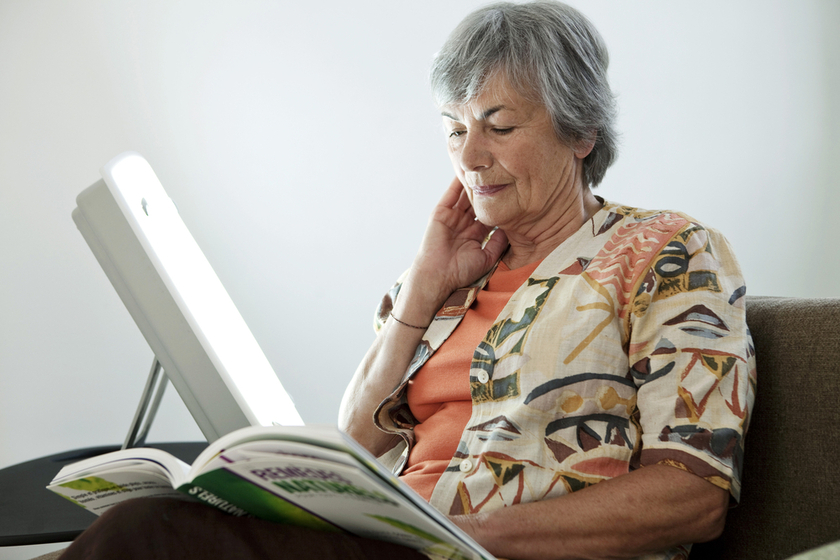Numerous health challenges confront the elderly, impacting their mood, sleep, and overall quality of life. Bright light therapy for the elderly populations offers a promising solution to these issues. By utilizing specific wavelengths of light, this therapy has been shown to significantly enhance the well-being of older adults. This post will explore how bright light therapy can benefit your aging loved ones, discussing its various advantages.
Understanding Bright Light Therapy
Bright light therapy involves exposure to a light source that mimics natural sunlight. Typically, the light used is much brighter than standard indoor lighting. The therapy sessions often occur in the morning and can last between 30 minutes to two hours, depending on the individual’s needs and the recommendations of a healthcare provider.
The premise behind the therapy is to reset the body’s internal clock, or circadian rhythm, which can become disrupted with age. By aligning these natural rhythms, elderly individuals can experience improvements in various aspects of their health and daily functioning.
Improving Sleep Quality
One of the most significant benefits of bright light therapy is its ability to improve sleep quality in elderly individuals. As people age, they often experience changes in their sleep patterns, such as difficulty falling asleep, waking up frequently during the night, and experiencing earlier wake times in the morning. These disruptions can lead to chronic sleep deprivation, which impacts overall health and cognitive function.
Bright light therapy can help regulate melatonin production, a hormone that controls sleep-wake cycles. Using light therapy in the morning can help seniors feel more alert during the day and encourage a healthier sleep pattern at night.
Enhancing Mood and Cognitive Function
Another vital benefit of bright light therapy is its effect on mood. Seasonal affective disorder (SAD) and other forms of depression are common in elderly populations, often exacerbated by decreased exposure to natural sunlight. Bright light therapy has been shown to mitigate symptoms of depression by stimulating serotonin production, a neurotransmitter associated with feelings of well-being and happiness.
Moreover, there is growing evidence that bright light therapy can also enhance cognitive function in the elderly, particularly those experiencing mild cognitive impairment. The therapy may improve memory, and attention, and even reduce confusion, which are common concerns among older adults.
Supporting General Health
Beyond improving sleep and mood, bright light therapy can offer additional health benefits. It has been associated with better regulation of blood sugar levels, reduced symptoms of dementia, and even the alleviation of chronic pain conditions like fibromyalgia. By improving overall health, bright light therapy can help elderly individuals maintain their independence and improve their quality of life.
How to Get Started with Bright Light Therapy
If you are considering bright light therapy for an elderly loved one, the first step is to consult with a healthcare provider to ensure it is a safe and appropriate option. Once cleared by a doctor, you can invest in a light therapy box. Look for one that emits at least 10,000 lux, which is the standard brightness level required to be effective.
It’s important to follow a consistent routine, ideally conducting the therapy sessions in the morning. This consistency helps maximize the benefits and supports the body’s natural rhythms.
Bright light therapy offers a multitude of benefits for elderly individuals, from improving sleep and mood to supporting cognitive function and overall physical health. It’s a safe, non-invasive, and effective method to enhance the quality of life for your elderly loved ones. With the proper guidance and a dedicated routine, bright light therapy can be a valuable part of their daily care regimen, helping them lead a more joyful and vibrant life in their later years.
In our retirement community, we incorporate bright light therapy into our comprehensive wellness programs, recognizing its benefits for enhancing mood and improving sleep patterns among our residents. Our team is dedicated to providing this therapy with the expert care needed to ensure it is as beneficial as possible. If you’re interested in learning more about how this therapy can help you or your loved one, please don’t hesitate to contact us.






